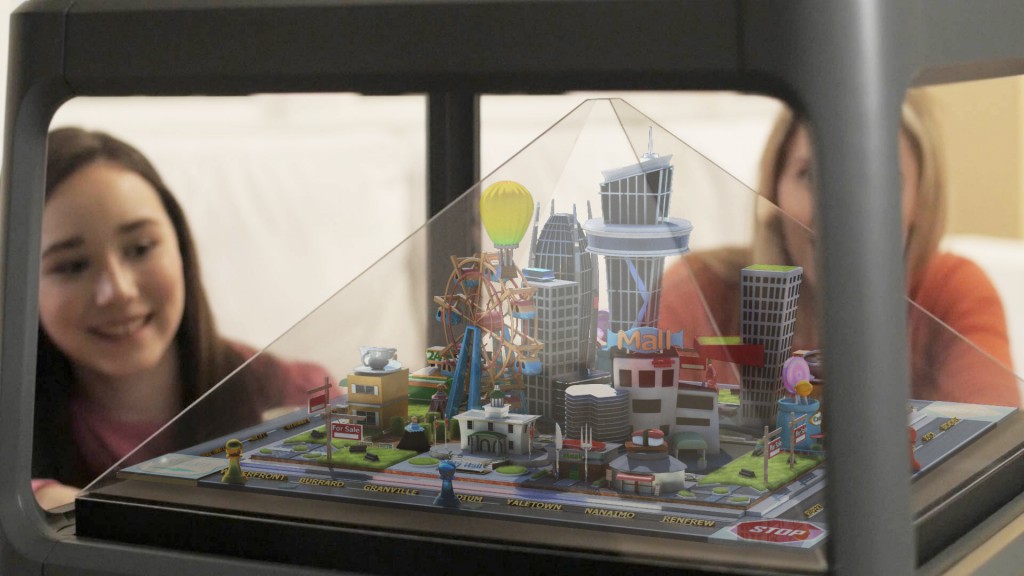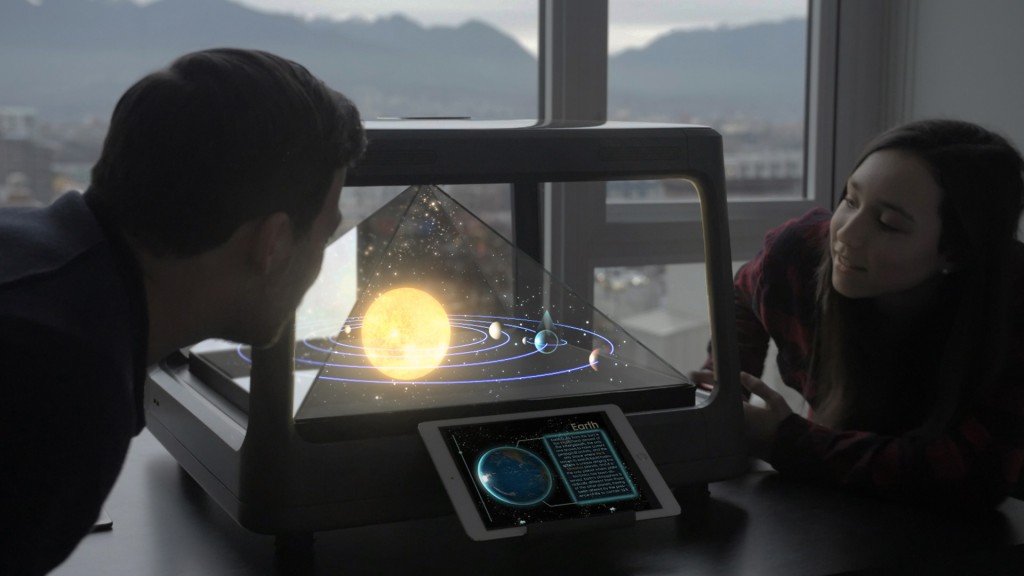While I have always been somewhat skeptical about the consumer applications of augmented reality and virtual reality, I love the idea of holographic systems and all that comes with it. I believe that – just as in the 80’s, they dreamed of the video phone – holographic systems will become commonplace within a couple of decades or even sooner. Along with Microsoft’s Hololens, the first of them might be the Holus system, which Vancouver, Canada-based H+ is launching on Kickstarter, priced at $550.
Leveraging already existing technology, the Holus holographic tabletop platform can connect to smartphones, tablets or computers, turning 2D content into a 3D hologram. It is intended to create a “social campfire” for the home, where users can learn, collaborate, and have fun through immersive displays. It is easy to see the potential gaming applications of such a device and H+ itself points out that it could be used to visualize 3D models before starting a print job.
As is becoming a common policy even in hardware development, the Holus will be offered in two varieties: a Home Edition and a Developer Version. The first is intended as a family entertainment and education device. It will come equipped with two smartphone charging docks and will work as a 3D visualization system, with applications available via App Stores, such as Google Play and iTunes.
The latter includes an HDMI port and SDK tool, with support for both Unity and Unreal, two of the most powerful and used video game engines on the market. It is intended to allow developers to create new applications, with particular focus on 3D printing or 3D character development and visualization for animation. The systems will also support professional and business uses, such as holographic teleconferencing and holographic business presentations.
“Our vision with Holus was to create an open platform that was accessible to absolutely everybody,” said Vincent Yang, CEO “Holus has unlimited potential that allows people to tailor everything to their personal needs. Whether that be teaching children in an immersive manner, or revolutionizing how global business relationships are formed, we hope Holus will have a hugely positive impact on everyone. We can’t wait to bring it to the Kickstarter community.”
Along with the accessible price point starting at $550, Holus will come equipped with a wide range of features that make it seem like a very realistic product, combining several widely available technologies to offer a futuristic, 3D visualization experience. It can of course be viewed at 360° and supports 3D sensors such as Kinect, Leap Motion, the Emotive Brain Sensor and the Occipital Structure 3D scanner. The near future is starting to look pretty awesome, from all angles.





